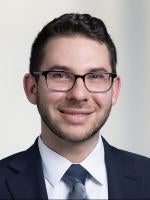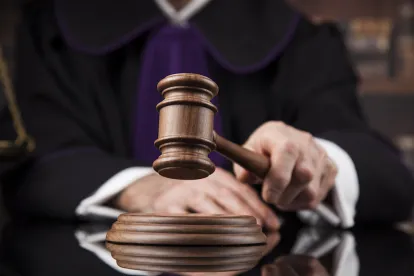California’s evidentiary rules have changed. As of January 1, 2024, defense expert testimony in medical causation cases is subject to a higher threshold.
A new section of the Evidence Code states:
(a) In a general civil case, as defined in Rule 1.6 of the California Rules of Court, where the party bearing the burden of proof proffers expert testimony regarding medical causation and where that party’s expert is required as a condition of testifying to opine that causation exists to a reasonable medical probability, the party not bearing the burden of proof may offer a contrary expert only if its expert is able to opine that the proffered alternative cause or causes each exists to a reasonable medical probability, except as provided in subdivision (b).
(b) Subdivision (a) does not preclude a witness testifying as an expert from testifying that a matter cannot meet a reasonable degree of probability in the applicable field, and providing the basis for that opinion.
The legislative history of this new section of the Evidence Code makes clear that the statute is a direct reversal of Kline v. Zimmer, Inc. Kline was a recent decision from the Court of Appeal holding that “the party without the burden of proof be allowed to suggest alternative causes, or the uncertainty of causation, to less than a reasonable medical probability.” Id. at 133.
Kline’s reasoning provides some helpful context for understanding the scope of Evidence Code § 801.1. In Kline, the defendant offered expert medical testimony about “possible alternative causes that [did] not rise to the greater than 50 percent chance” of having caused the plaintiff’s injury. Id. at 130. The Court of Appeal held that, because the defendant “did not need to show that a different cause was more likely than not the cause of [the plaintiff]’s injuries,” the defendant should have been able to “offer[] expert opinions offered to less than a reasonable medical probability that [the plaintiff]’s injuries may have been attributable to other causes.” Id. at 132.
The Court of Appeal observed its holding did not mean that “a trial court must accept every opinion offered by a defense expert, no matter how speculative.” Id. at 134. Rather, because defendants do not bear the burden of proof, the court found they should be permitted to present non-speculative theories of causation to the jury, even if those theories were not offered to a reasonable medical probability. Id. But the California legislature’s choice to overrule this case demonstrates its desire to hold plaintiffs and defendants to identical evidentiary standards.
What this new evidentiary section does not do is prevent defendants from calling an expert witness to poke holes in a plaintiff’s expert’s affirmative theories. Subsection (b) of the statute is clear that an expert is still permitted to testify “that a matter cannot meet a reasonable degree of probability.” That the statute is a reaction to Kline further demonstrates that the target of this legislation is defense experts proffering “possible alternative causes,” not merely testifying about the failings of a plaintiff’s expert’s suggested theory. Defense experts should therefore be prepared to offer only opinions that are expressed to a reasonable medical probability.



 />i
/>i

